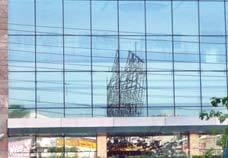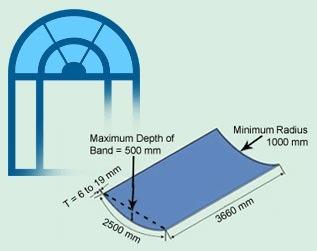Gobind Glass House
Product Range
Fact Sheet
- Location:Punjab, India
- Year of Establishment:1980
- Business Type:Trading Company, Distributor / Wholesaler, Retailer
- Turnover:Rs. 50 Lakh - 5 Crore
(or USD 100 K - 1 Million) - Main Products:Art Glass, Tempered Glass
- Reviews & Rating:
Get Verified, Sell more with
- Buyer's trust
- Faster conversions
- Better Rankings
- More
Its Free
Verify NowInsulated Glass
The Insulated glass is a prefabricated unit made of two or more glass panes, which have been separated by an air gap and edge-sealed together. The air enclosed between the two glass panes is dried with a desiccant.
- FOB PriceNA
- Min Order QuantityNA
- Payment TermsCash,other,Cheque
Other Details
Insulation : Saves on heating and cooling by reducing air to air heat transfer.
Dew Condensation : There is no dew formation on the glass surface permitting a clear view even in the most humid conditions.
Sound Transmission : Using one of the panes as laminated glass will drastically reduce sound transmission. Using dissimilar thickness of glass panes will also help combat noise. Replacing air with suitable gas will also reduce sound transfer.
Comfort : It offers increased personal comfort even when seated next to the glazing as the temperature of the inner pane is close to room temperature maintained.
Office buildings, hospitals, hotels, houses and buildings with heating or cooling requirements.
For use in airport control towers, train windows and other environments that need regulated atmosphere and prevention of condensation.
Airports and buildings near highways and railways, that require sound insulation properties.
1. Maximum size 2500 mm X 3660 mm. (Please check with us for larger sizes)
2. Filled with dry air (conventional) or Argon (for better thermal) or SF6 (better acoustical).
3. Combinations vary and may use clear, tinted, ceramic decorated or high performance glass in annealed, heat strengthened or laminated form.
4. Low-E is available on the #2 or #3 surface of an insulating glass unit.
5. Step glass is available.
6. Shaped DGU’s also available.
7. Bent DGU is also available on special request. Check for limitations.
Precautions:
Regardless of edge construction, the insulating edge seal can’t be exposed to moisture for prolonged time periods.
Consideration must be given to weep holes or other alternate methods which will as sure dry framing cavity.
Distortion can occur in insulating glass units from changes in temperature, barometric pressure and altitude and is not cause for rejection. Distortion may also be more apparent in reflective insulating glass units. The amount of distortion can vary among the available coatings. When viewed at sharp angles, insulating glass may exhibit as surface distortion similar to an oil stain. This condition is a characteristic of flat surface of the float glass and is commonly referred to as “Jamin fringes".
Images








